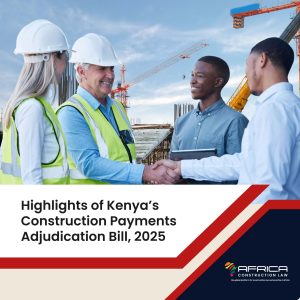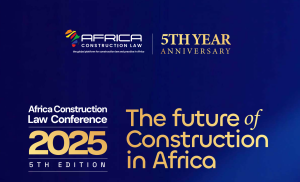Using CRCICA in construction contracts: CRCICA arbitration and innovative dispute resolution mechanism safe from the Egyptian ‘Supreme Constitutional Court Law’ Amendments
by Dr Ismail Selim, Director, Cairo Regional Centre for International Commercial Arbitration (CRCICA) Cairo Egypt[1]
Egypt, host of Cairo Regional Centre for International Commercial Arbitration (CRCICA) since 1979, has undeniably developed a safe harbour for arbitration be it domestic or international, as a means to resolve effectively disputes arising from a diversity of industries, including the construction area. The Egyptian Amendment of the Law No. 48 of 1979 (“Amendment”), that regulates the powers of the Egyptian Supreme Constitutional Court, by Law No. 137 of 2021, has been subject to many debates, before effectively entering into effect on August 31, 2021. At the agenda, the business, commercial, and investment communities’ concern with regard to the economic and financial climate, in the eventuality that the Supreme Constitutional Court would be granted control over decisions rendered by arbitral “bodies”, be it foreign or international, to be opposed execution by the Egyptian State if they shall contradict with the Constitution of Egypt.
Dr and Engineer Engy Serag commented in a previous article on the amendments, highlighting that the construction community may attend to CRCICA’s new Dispute Board Rules, as a means to resolve their disputes effectively, and safely. The CRCICA can only recommend the use of this highly efficient, cost-saving means, that helps preserve and enhance the contractual relationship of parties to construction projects and contracts from beginning to end. Widely adopted in the construction industry, they were effectively first developed to preserve the relationship of the parties and see through big development, infrastructure and construction projects. Such means of resolving disputes has been steadily gaining momentum, and is starting to attract the attention of other industries, as the need for prompt, cost-effective and impartial dispute resolution can be found in many, if not all of them.
The construction community can however rest assured: arbitration under the auspices of CRCICA will stay safe from the new amendments. The wording that enabled the Supreme Constitutional Court to review the constitutionality of judgements or decisions emanating from “arbitral bodies” has been removed from the final draft that was adopted. Further, the use of arbitration in the construction sector will not be affected by the wording that remains and allows for control of decisions emanating from “international organisations” or “bodies”. Indeed, not only does the exclusion of the pre-existing reference to arbitration positively affect the Supreme Constitutional Court’s margin for interpretation of that text, but also, arbitral tribunals rendering their awards and orders under the Rules of CRCICA remain distinct and independent bodies, unaffected by CRCICA’s status, as a permanent international organisation granted privileges and immunities by the Egyptian Government. The decisions issued by the CRCICA itself, such as its decision to appoint an arbitrator, cannot be subject to the Constitutional Court review since such review under the Amendment is exclusive to the titre exécutoire (i.e. judgments and injunctions that may be subject to enforcement orders issued by state courts). This is definitely not the case of the decisions of arbitral institution pertaining to the arbitral case management.
Interestingly enough, an undeniable fact has evaded all comments on the Law: the fact that the reform is effectively borrowed from the recent Russian amendment of their Constitution. The mechanism and phrasing considered for inclusion at Article 27 (bis) and 33 (bis) of the Law No. 48 of 1979 is a direct reflection of Putin’s 2020 Reform of Article 79 and 125 (5) (b) of the Russian Federation Constitution. As a result, exclusion of arbitration from the Egyptian replica of the Russian model-mechanism demonstrates that the Egyptian Government and Legislative never had the intention to target arbitration neither exclusively, nor accessorily, and shows also intention to renew and preserve the trust and guarantees of foreign and international investors, as well as of the business community, on part of the Egyptian Government and Legislative bodies.
Decisions issued by arbitral tribunals in accordance with CRCICA’s Rules will thus stay out of reach of the Supreme Constitutional Court’s control, and will (and may) not be opposed by the Egyptian Government or State in the application of that text. The constitutionality of awards, of which recognition and enforcement is sought, is besides already part of the Cairo Court of Appeal, and the Egyptian Court of cassation’s control as part of Egyptian public policy: the amendments do not lay an extra-weight or provide for additional motives to refuse recognition and enforcement. The amendment only suggested initially that this control would extend to the Supreme Constitutional Court, in a different capacity, in addition to those already exercised by the common Courts. It remains the case that arbitration, as may be elected by the parties to construction contracts, will remain a safe way to resolve disputes arising in the construction industry.
Why would (and should), thus, the construction industry, valued at USD 399 billion in Africa in 2020, be interested in the alternate mechanism of Dispute Boards, if arbitration is safe from Egypt’s reform? For those that do not know, Dispute Boards take the form of a standing body, usually composed with three individuals, chosen by the parties upon the signature and commencement of the performance of their contract. The on-going basis on which Dispute Boards operate makes them exceptionally effective in avoiding, anticipating and (if need be) resolving disputes that may arise between the parties in the frame of their contractual relationship, during the span of any long-term project, facilitating its delivery, and avoiding delays and unnecessary costs. Actively involved throughout its realisation, they are trusted by the parties to oversee the execution of the contract and its associated project until the project reaches full completion. Parties, after choosing the Dispute Board, will be effectively able to rely on it for any minor to major problems that may arise. The Dispute Board members will have ongoing factual, technical and legal knowledge of the project enabling them to act in real-time, to prevent or solve any difficulties the parties may face.
The Dispute Board members will be traditionally entrusted this task through regular reports by the parties on the state of the project and through communicating any other relevant information. For construction projects, the Dispute Board will undertake regular on-site visits, although regular meetings with the parties could also effectively be used for updates and follow-ups of different types of projects in other industries. Many of the long-term relationships of the construction industry cannot suffer the interruption of a dispute having to be submitted to arbitration before the parties will act upon their problem. Such interruption may sometimes entail deteriorating the relationship of the parties and compromising the finances and execution of the project to such an extent that, once the award is issued, the relationship of the parties and project have already come to an end.
Dispute Boards thus come in handy in those types of situations, and contractual frameworks. Arbitration is not excluded: parties will be able to resort to it, in the eventuality that they disagree with a final decision made by the Dispute Board. However, the unsatisfied party will be contractually obliged to comply until an arbitral award is actually issued, and in the meantime, the project continues. Mostly, parties will not feel the need to attend to arbitration. The individuals that compose the Dispute Board are trusted by them, and know the project and contract well-enough to take informed decisions, which the parties will be often content to apply. Their impartial resolution of disputes, and more importantly, their ability to help and assist the parties in anticipating and preventing them from having a dispute builds a relationship of trust between the parties and the Dispute Board members.
The CRCICA has thus recently adopted, in that view and to that purpose, its own set of Dispute Board Rules, targeted to offer the business community the necessary tools to adopt this form of dispute resolution mechanism and implement it easily in their contracts, without the need to establish an entire framework for their effective use and operation. They consist in a comprehensive set of provisions for constituting, establishing and operating a Dispute Board, with a Model Clause for insertion at the contract, and a Model Agreement between the parties and Dispute Board members. From constitution, to informal dispute avoidance and formal dispute resolution, the Rules oversee and establish every necessary step for the successful use and recourse to a Dispute Board, regulating matters such as remuneration of the Dispute Board members, their qualifications, obligations and communications with the parties.
More importantly, the CRCICA Dispute Board Rules establish the framework for their decision and advice. Two types of Dispute Boards may operate under the CRCICA Rules: the Dispute Review Board (DRB) and the Dispute Adjudication Board (DAB). DRBs issue recommendations that become binding on the parties, only after a certain time has elapsed without it being contested by either one of them. DABs issue decisions that are immediately binding on the parties, but that, in case of their rejection by either one of them, allow for their referral to arbitration.
In any case, decisions or recommendations may also, once final and binding and in case of a party’s failure to comply, be referred to arbitration by the party requesting the effective compliance and execution of the other therewith. This will more often than not, not be necessary. The familiarity with the project and legitimacy of the Dispute Board with regard to the parties, will make most disputes either avoided at their very inception, or solved to the satisfaction of both in the most effective and timely manner. As a result, the CRCICA does recommend the use of Dispute Boards, as an alternate way to prevent and resolve disputes, in contractual arrangements that require such long-term standing partnerships, to see through operations and projects that the parties first got into a relationship in order to lead to their full term and realisation.
[1] The author ca n be reached at i.selim@crcica.org. The author would like to thank Ms. Audrey Plez and Mr. Axel Audren, interns at CRCICA, for their assistance in the drafting and research works relating to this article.


















